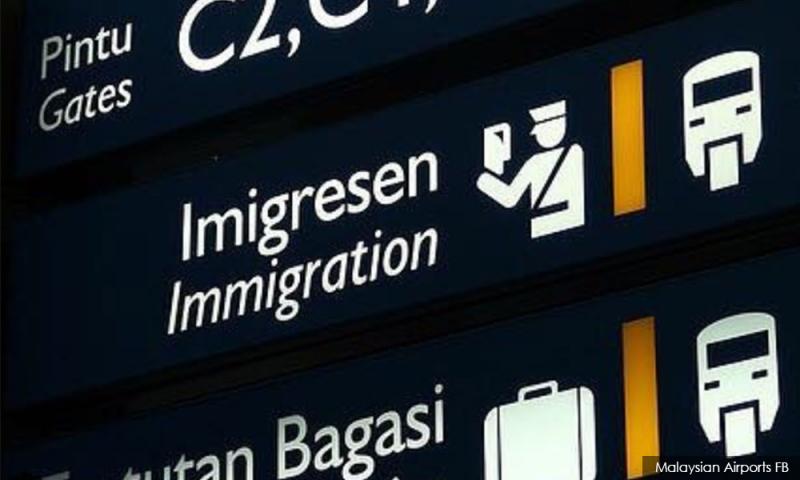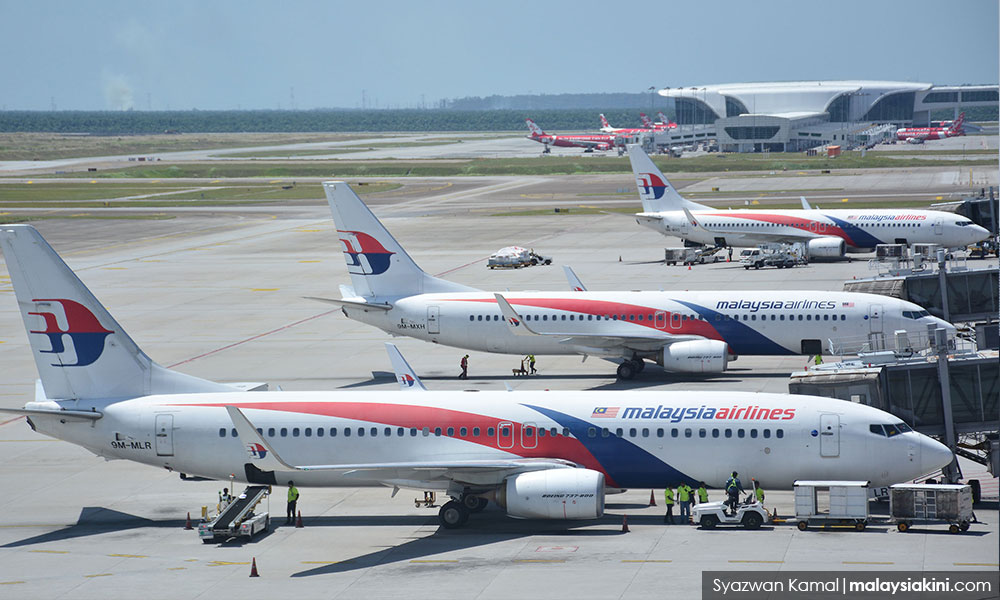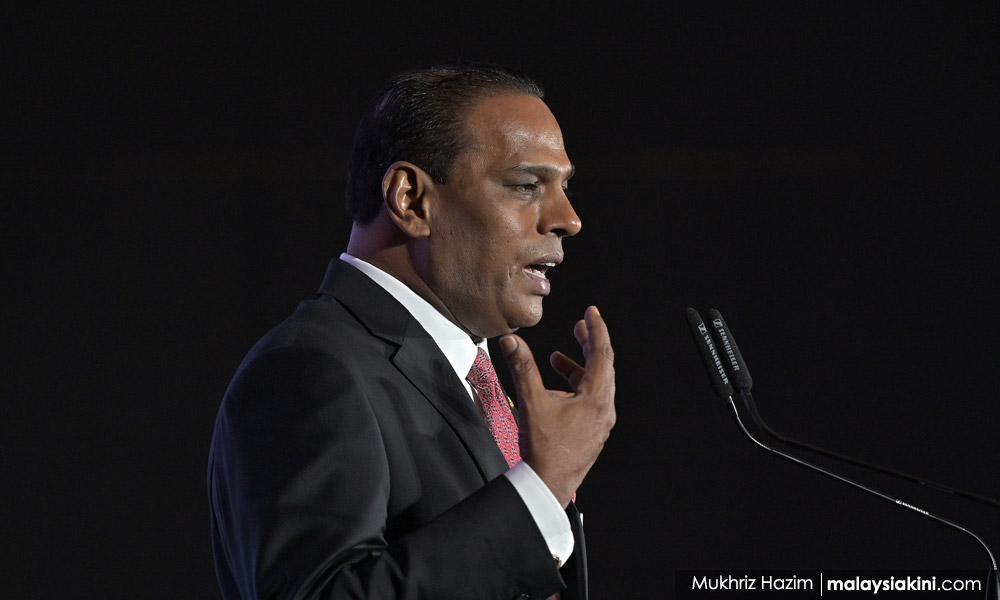
More 'duped' workers from India, nearby countries denied entry - sources
Another 50 Indian workers were issued a “Not to Land” order at the Kuala Lumpur International Airport 2 (KLIA2) yesterday, according to sources close to the Indian High Commission.
They said this did not include more workers from Bangladesh and Nepal who were facing the same predicament.
This comes after some 200 Indian workers, believed to be lured by unauthorised agents, were previously refused entry and deported from KLIA2 last week, despite paying the agents thousands of ringgit to work in Malaysia.
Confirming Malaysiakini's earlier report, an Indian High Commission source said Nepali and Bangladeshi workers were also issued "Not to Land" orders for the same reasons, but could not provide the number of people affected.
In a statement last week, the Indian High Commission said its workers were issued a “Not to Land” order because they did not have proof of sufficient funds, accommodation, and return tickets home.
The source said the same checks carried out by the Malaysian Immigration Department should have been carried out before visas were issued.
“The Malaysian High Commission in India should be asking the same questions before issuing their visas," he said.
He added that the workers did not understand the conditions of the visas issued to them, nor did they know the standard operating procedures imposed on expatriates.
“Their interests are focused on what jobs were available to them, their salary amount, and how to send the money home.
“They were probably told that someone would receive them at the airport in Malaysia and they just followed the instructions,” said the source, who added that many workers have lost savings and gone into debt to work in Malaysia.
The source said the airlines, too, had a responsibility to check flight details as many workers had arrived in Malaysia with fake return tickets.
He said workers get trapped in this situation due to the demand for better jobs among Indian citizens and the demand for workers among Malaysian employers.
He said many workers with legitimate paperwork have also been caught in the debacle, but managed to clear immigration checks after employers endorsed their entry.
The High Commission source feared the rising numbers of Indians turned back at Malaysian airports would impact tourism to Malaysia, as immigration would become stricter with those travelling from India.
Before the pandemic, some 700,000 tourists from India entered Malaysia a year.

Confirming that 50 Indian workers were denied entry yesterday, India-based advocacy group Parvasi Legal Cell's Malaysia and Singapore coordinator Zahir Hussain said these workers also tried to enter as tourists as advised by agents.
He urged workers to ensure they have signed employment contracts before paying any recruitment fees to agents.
Considered as human trafficking
Meanwhile, Human Resources Minister M Saravanan said workers entering the country through legal channels, but as tourists, can also be considered human trafficking cases.
He said human trafficking is not only limited to those smuggled into the country through unsanctioned border crossings.
“Foreign workers who are brought into the country as tourists and taken to work in various sectors are also considered trafficking in persons,” he said in an interview on the Vanakkam Malaysia YouTube channel on May 9.
Describing a scenario, he said a worker from the Indian state of Tamil Nadu who came to Malaysia through legal channels would become a forced labourer when employers hold back wages, Saravanan said.

Human Resources Minister M Saravanan
“For six to seven months, the employer would not pay his wages.
“The worker who had incurred debts and has mounting family commitments back home would start to feel the stress of not being able to send money back.
“When someone else approaches him with promises of better wages paid in a timely manner, this worker who was legally documented would leave his present employment and abandon his passport for the better offer,” he explained.
Saravanan said this example typified how a documented migrant worker became undocumented and fell into the trap of forced labour “because of our (Malaysian employers’) wrongdoing”.
When contacted on the latest issue of workers being turned back at the airport, he said the issue fell under the purview of the Immigration Department.
“Please check with them,” he responded via WhatsApp.
He is currently on a working trip with Prime Minister Ismail Sabri Yaakob to the United States, where he has promised to share Malaysia’s efforts in combating forced labour.
“For six to seven months, the employer would not pay his wages.
“The worker who had incurred debts and has mounting family commitments back home would start to feel the stress of not being able to send money back.
“When someone else approaches him with promises of better wages paid in a timely manner, this worker who was legally documented would leave his present employment and abandon his passport for the better offer,” he explained.
Saravanan said this example typified how a documented migrant worker became undocumented and fell into the trap of forced labour “because of our (Malaysian employers’) wrongdoing”.
When contacted on the latest issue of workers being turned back at the airport, he said the issue fell under the purview of the Immigration Department.
“Please check with them,” he responded via WhatsApp.
He is currently on a working trip with Prime Minister Ismail Sabri Yaakob to the United States, where he has promised to share Malaysia’s efforts in combating forced labour.
No comments:
Post a Comment